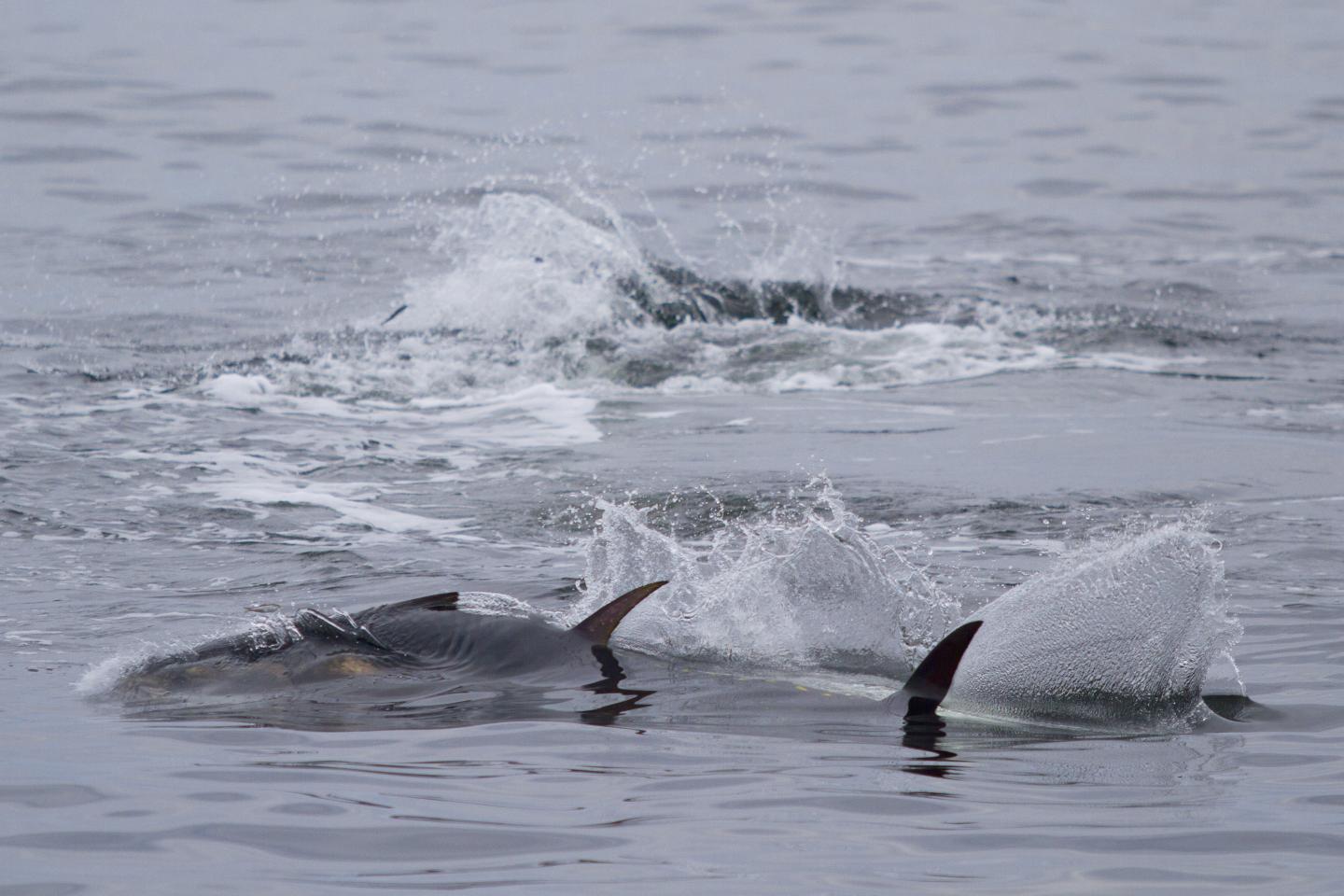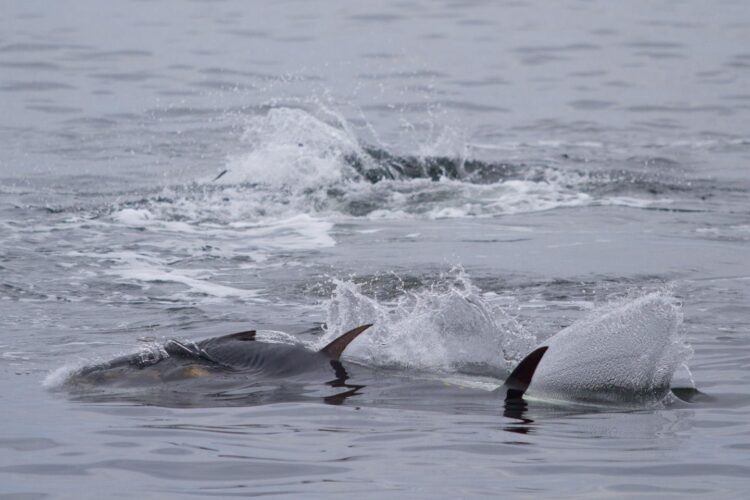
Credit: Tom Horton
Atlantic bluefin tuna have returned to UK waters and can once again be seen during the summer and autumn months.
Their numbers appear to be increasing, following a long period of absence linked to population decline, according to research led by Cefas and the University of Exeter.
Marine scientists in the UK and Ireland have analysed multiple datasets, spanning a 16-year period, to document the increase in bluefin, which arrive into the waters of the Celtic Seas and off South West England, the Scilly Isles, and North West Ireland to feed in late summer and autumn.
The research is part of the Defra-funded “Thunnus UK” research project.
Thunnus UK was established to improve knowledge of this species, as an essential first step in ensuring a positive future for Atlantic bluefin tuna around the UK.
Central to the project’s success has been a concerted effort to share and combine important data on where people have observed Atlantic bluefin tuna.
This will help to identify where and when these fish are found in UK waters.
Nearly 1,000 unique observations were recorded between 2013 and 2018 by citizen scientists, scientists, fishers and eco-tour leaders.
Researchers found that Atlantic bluefin tuna begin to arrive in May and stay as late as January.
However, peak numbers were recorded between August and October each year.
The research draws on five key data sources:
- The general public: A total of 80 sightings recorded by the public and submitted to http://www.
thunnusuk. org - Eco-tourism: three eco-tourism vessels collecting data on more than 1600 boat tours off the SW coast of England between 2008 and 2018.
- Opportunistic scientific surveys: 40 days of surveys with >2500 km of effort conducted by Cefas and University of Exeter experts off the Northwest Coast of Ireland and SW England in 2016 and 2018.
- Fisheries independent surveys: (1) data collected by MarineLife during the Peltic survey by Cefas between 2013 and 2015, and (2) data collected by the Irish Whale and Dolphin Group during the Irish Marine Institute’s Celtic Sea Herring Acoustic Survey between 2014 and 2018
- Bycatch in commercial fisheries: Bluefin tuna were accidentally caught (bycatch) in the Irish commercial fishery for albacore tuna between 2003 and 2017.
Lead author Tom Horton, of the University of Exeter, said: “Atlantic bluefin tuna are once again a feature in nearshore waters off the UK and Ireland.
“We’ve been able to document this story by using data from a wide variety of sources.
“We need to work together to ensure a future for Atlantic bluefin tuna, both in the UK and Ireland and more broadly throughout their range in the Atlantic Ocean.
“This is a really exciting study and the return of these fish suggest an important role in the UK’s ecosystem.”
Jeroen van der Kooij, Principal scientist and Peltic Survey Lead, Cefas, said: “The unique data collected during our annual pelagic ecosystem survey of SW English waters is fundamental to this research.
“Marine animal observers from MARINELife on board our research vessel recorded not only the arrival, but also a subsequent year-on-year increase in sightings of bluefin tuna in the area.
“We will continue to collect this information, which, in combination with data on their prey fish and habitat collected during the same survey, will hopefully increase our knowledge of these exciting yet enigmatic animals.”
###
Media Contact
Alex Morrison
[email protected]
Related Journal Article
http://dx.





